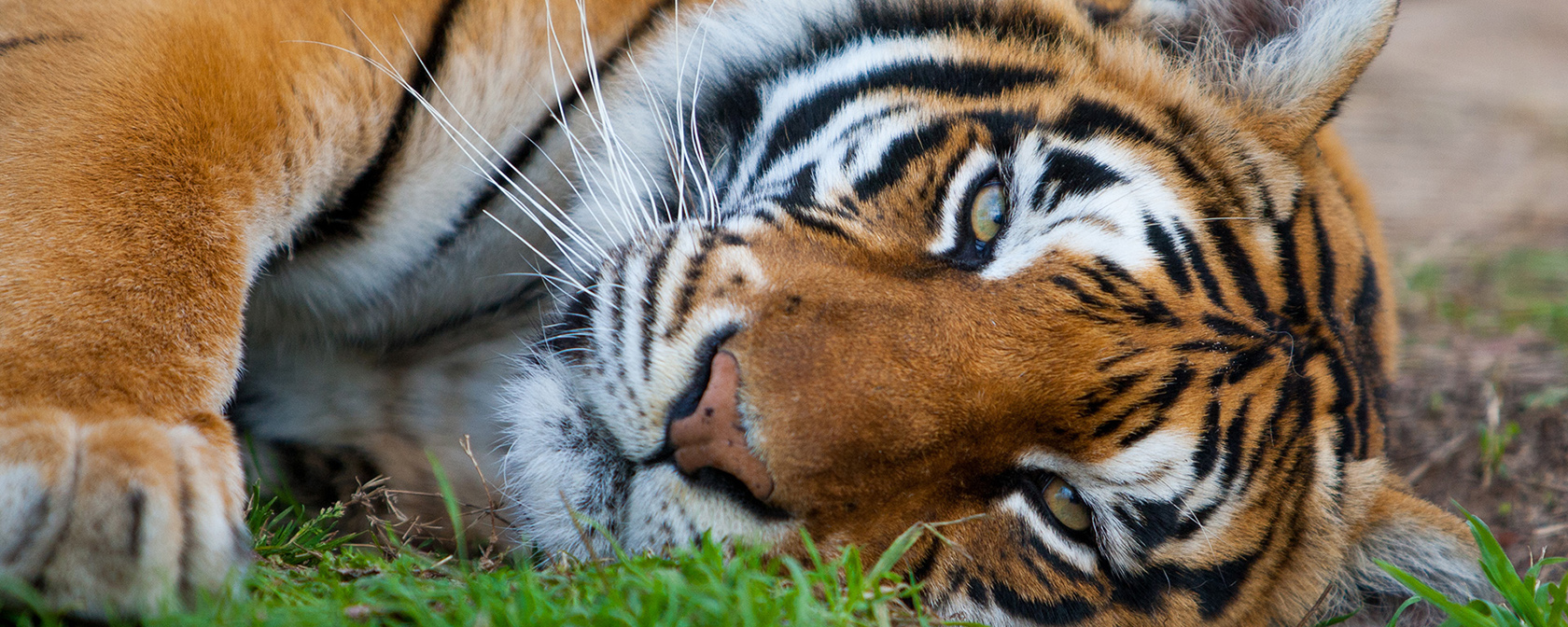By Sara Amundson and Kitty Block
For over a decade, we have been fighting hard to prevent the suffering and abuse of captive big cats, confronting a dangerous industry and the individuals who take advantage of these animals. And we celebrated in December of last year when President Biden signed the Big Cat Public Safety Act into law.
The fundamental goals of the law are clear: to protect the big cats from the exploitative cub petting industry, protect the public from unqualified private owners who keep big cats as “pets” and strengthen the federal government’s ability to fight wildlife trafficking.
Implementing such a strong law requires committed advocacy as it takes several steps through the regulatory process, and we’re pleased to see that the U.S. Fish and Wildlife Service just issued strong regulations that align with the law and its animal welfare and public safety imperatives:
- The law prohibits physical contact between big cats and the public.
- Private owners are now prohibited from breeding, selling or acquiring any new big cats. They must register their big cats before June 18 and must notify the Service if their animals die, change owner or move locations.
- The Service has the authority to confiscate big cats from violators and place them in a wildlife sanctuary.
These directives are essential to phase out a shameful era of the treatment of big cats in the U.S. For years, the captive display industry bred big cats to produce cubs who were removed from their mothers at birth, passed around for photos and profit and then discarded after a few months when they became too large and dangerous to handle. They have been warehoused in small cages at roadside zoos, killed to make space for new animals or kept as “pets” in backyard cages throughout the country.
In addition to inadequate housing and care, big cats have escaped when they end up in the hands of unqualified people. Since 1990, more than 400 dangerous incidents involving captive big cats have occurred in 46 states and the District of Columbia. Five children and 19 adults have been killed, and hundreds of others have lost limbs or suffered other often traumatic injuries.
After years of advocating for better treatment of big cats, it’s heartening to see the Big Cat Public Safety Act fully implemented. We applaud the U.S. Fish and Wildlife Service for swift enforcement of this law and look forward to working with them to ensure big cats are protected.
If you know of a tiger, lion, cougar or other big cat who you think is being kept illegally or you see any facility offering cub petting, you can report it to the U.S. Fish and Wildlife Service by sending an email to LawEnforcement@fws.gov. You can also join us in thanking the agency for their work and encouraging strong enforcement against violators through the instructions in this Federal Register notice.
Kitty Block is CEO of the Humane Society of the United States.
